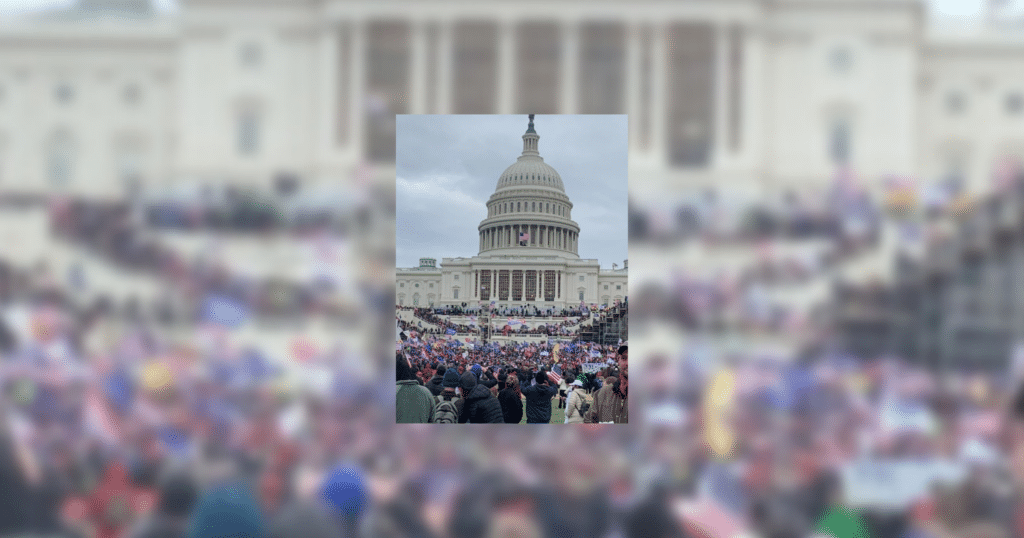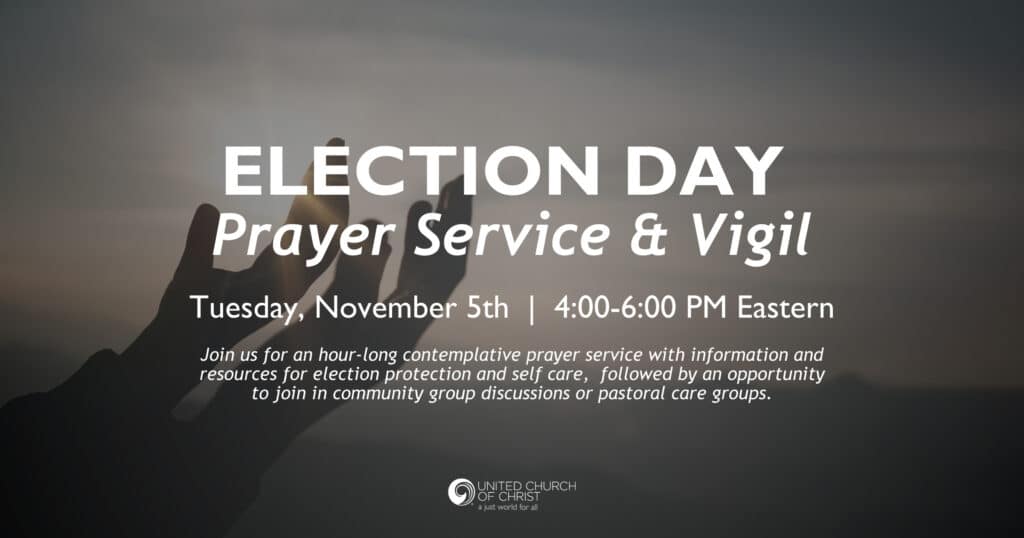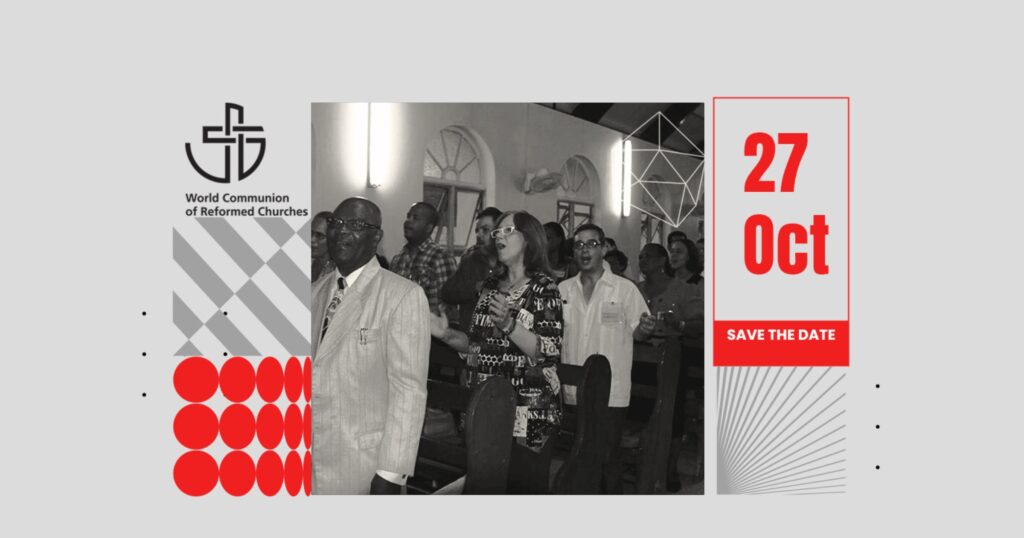UCC D.C. leader: We keep safe, working for the common good
The United Church of Christ office in Washington, D.C., is just across the street from the Capitol Building. I was on Capitol Hill when the events of Jan. 6, 2021, unfolded. Images of that day are seared in my memory. I have lived and worked in Washington for over 30 years, engaging in marches, vigils, justice witnesses and nonviolent actions too numerous to count. Still, I had never seen anything like the violent, chaotic Jan. 6 assault on our seat of government.
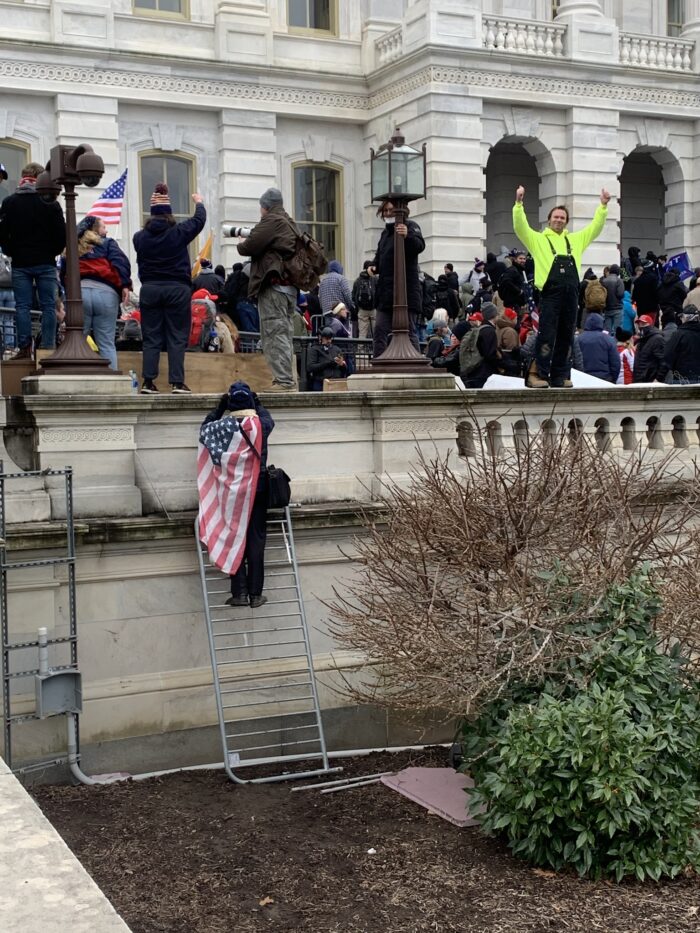
Scaffolding was already in place on the west front of the Capitol in preparation for the 2021 presidential inauguration of Joe Biden, and in years past, tight security measures would have prevented access to the area immediately around the building and surrounding grounds. So I simply could not believe my eyes when I saw armed “Stop the Steal” protestors breaking through fencing, scaling the scaffolding, battling with overwhelmed Capitol police and breaching the Capitol Building from all sides. Tear gas and bear spray filled the air, and flares were fired from the Capitol lawn. Many of those engaging in the assault on the Capitol had military-grade equipment and in some instances were better equipped than the Capitol Police officers bravely struggling to protect lawmakers inside. It was a war zone. No more was there any false illusion that a violent, political takeover of the government, the overturning of free and fair elections could happen here. Waves of disbelief, anger and terror swept over me, and I was physically shaking hours after returning home.
The Jan. 6 assault on the Capitol was far more than an assault on a building. It was an assault on a free and fair democratic process; it was an assault on any whisper of change to an American narrative steeped in white racism and economic exploitation. And the slow-motion attack on an open, free and fair democratic process continues in the form of state-level voting rights restrictions and the failure of the Senate to restore and protect voting rights and a shredded election infrastructure.
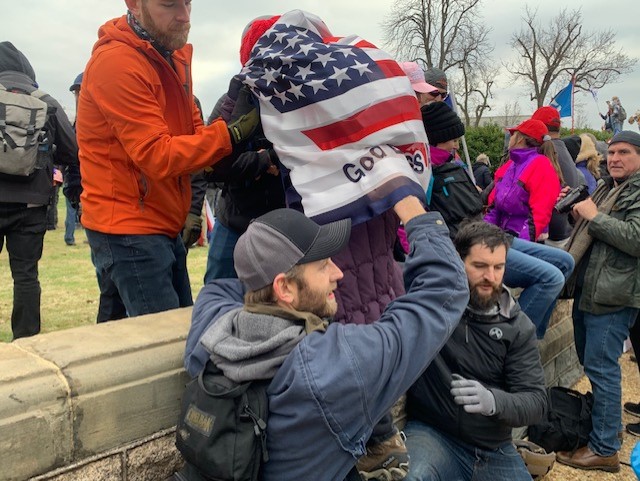
But it was also an assault on my home, the city where I live and work. And in the aftermath of the violence, the Capitol grounds were transformed into an encampment, with 7-foot “unscalable” fencing topped with razor wire surrounding the entire complex, which includes all House and Senate office buildings and the Library of Congress. To get to our office, I needed to show my ID and a special-issue permit indicating I worked inside the Capitol perimeter. Then I had to make my way past the thousands of National Guard troops patrolling the grounds. Humvees were stationed at intersections and multiple layers of fencing awaited inside.
It is a year later, and the fencing has been taken down. But I cannot erase all the images from my memory. And the ugly, horrible realities of our nation’s underpinnings that the Jan. 6 assault laid bare once again remain.
I have been reflecting on what safety and security really look like moving forward. What really keeps us safe? And who is included? I was struck by a recent article in the Sunday Washington Post Metro section describing the impact of the heightened security on the residents of the neighborhoods surrounding the Capitol. The article referenced the fact that not far from the thousands of troops keeping watch there, a 15-year-old middle school student was shot and killed in Southeast Washington. As Ward Six Mutual Aid Executive Director Maurice Cook observed, “Who are they keeping safe? Because it’s not people like me.”
Our safety and security will not ultimately be ensured by fencing and razor wire and jersey barriers. Our safety and security are inextricably connected to the state of the common good. And the common good is in grave peril as we face the multiple pandemics of COVID-19, systemic racism and a rapidly growing economic divide, to name but a few.
Amid such formidable challenges, we must navigate a treacherous political and social terrain, as some political leaders continue to sow division and lies, and the lure of partisanship and crass political gain disrupt the hard, slogging work of governance. But our silos and bubbles and Internet echo chambers will not protect us either. Far more powerful than razor wire and fencing are a robust, accessible democratic process and an engaged electorate willing to call our elected leaders accountable to the common good. Time and time again. Our safety and security rest in our willingness to engage this tumultuous, divided climate in whatever ways we can. We keep us safe through our unflagging advocacy for a common good that includes all people, for governance over politicking, for truth-telling no matter how hard it is to hear. We keep us safe by not letting despair have the last word.
Sandy Sorensen is director of the United Church of Christ office in Washington, D.C.
On this first day of Epiphany, the Rev. Traci Blackmon points out the ironic timing of the insurrection and what counters such chaos. Read her reflection here.
UCC General Minister and President John Dorhauer marks this anniversary of the assault on the Capitol with a wake-up call. Read his commentary here.
Related News
UCC to offer Election Day Prayer Service and Vigil
On Election Day, Nov. 5, join the Rev. Karen Georgia A. Thompson together with United Church...
Read MoreGoing beyond the blessing: Churches emulate St. Francis’ care for animals
https://www.youtube.com/watch?v=lu3LYwhLxCo UCC News presents a video news story on the...
Read MoreUCC leaders invite all to global celebration of Reformation Sunday
This Reformation Sunday, leaders from the United Church of Christ will participate in a global...
Read More